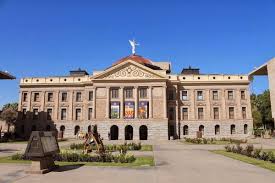Last Wednesday the governor declared a public health emergency to get enhanced authority to respond to the COVID-19 pandemic. This is the 2nd time that this governor has declared a public health emergency (the first one was to respond to the opioid epidemic).
So what does that mean?
It means that there are things that state government can do now that they couldn’t before last Wednesday. That extra authority is in ARS 36-787. The governor’s press release about the Order provided some clues as to what extra authority he intends to use at least at the start. The Order specifically:
-
Allows ADHS to waive licensing requirements during heightened demand;
-
Gives the state to access $500,000 in emergency funds to buy stuff and provides the state with emergency procurement authority to buy it;
-
Requires insurance companies to cover out of network providers;
-
Waives co-pays and deductibles for consumers related to COVID-19 diagnostic testing;
-
Implements consumer protections on COVID-19 of diagnosis and treatment-related services; and
-
Requires symptom checks of healthcare workers and visitors at skilled nursing facilities, nursing homes, and assisted living facilities.
Some of the additional authority in ARS 36-787 that wasn’t mentioned in the executive order provides authority for:
-
Establishing a temporary waiver of the professional licensing requirements;
-
Granting temporary waivers of health care institution licensing requirements;
-
Mandating medical examinations for exposed persons;
-
Rationing medicine and vaccines;
-
Buying medicines and vaccines; and
-
Under more narrow circumstances, mandate treatment or vaccination of people and even order the isolation and quarantine of folks.

